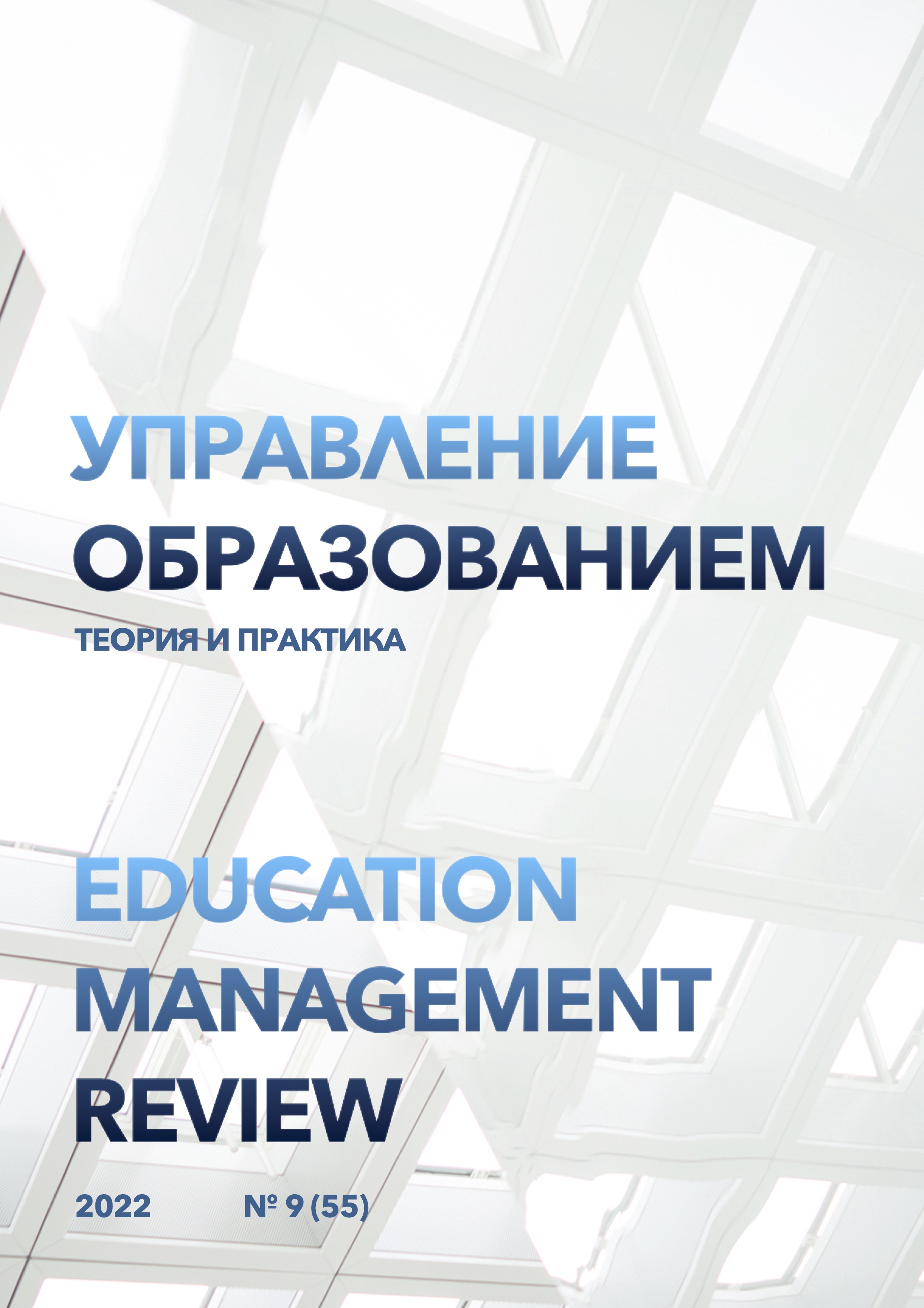Coordination of higher education at MSU: a challenge to priority strategies for the quality of education and training in higher education
DOI:
https://doi.org/10.25726/d0910-6952-2799-vKeywords:
higher education, coordination, research, improvement, professional trainingAbstract
The new strategy for improving the quality of education is presented in the Federal Law “On Higher Education” in the form of intentions to develop and implement new criteria for assessing the quality of education, as well as the established National Agency for Quality Control of Higher Education, etc. In addition, universities are granted the right to independently determine the subject areas of sciences and disciplines of curricula in accordance with the regional needs where universities are located. This makes it possible for universities to take into account the needs of regions for specialists, identify specific enterprises and establish appropriate mutually beneficial relationships with them, conclude contracts in which universities create certain conditions for employees of such enterprises in the form of distance learning, etc., and for specialists who study at universities, enterprises will increase (preferably) wages, stimulating motivation their own professional growth and development, as it is practiced in Japan. At first glance, the changes specified in the law are related to the content of education, the possibilities of its changes in accordance with the needs of the regions. But we note that the content itself and the software of the content in the university of any sciences and disciplines remain prioritized with respect to the principles of the implementation of the natural science paradigm (objectivity, reliability, representativeness, validity, etc.). They are reflected in textbooks, manuals, scientific articles, monographs as the main means of theoretical training of future specialists in universities. And, as a consequence/conclusion: by presenting the content regulated by the principles of the natural science paradigm in these means, universities prepare specialists who are professionally suitable for work in research institutions, laboratories, but professionally not suitable for work in industry organizations, since their goals and objectives are completely different. Firstly, to identify scientific facts, patterns, laws and create appropriate theories based on them, and in industry organizations - to solve problems, determine the causes of problems, find ways to overcome them, and so on. In other words, intellectual, mental, rather than experimental research activities of specialists with higher professional education prevail in industry organizations.
References
Ашырова М.Г. Проблемы и необходимость экологического воспитания и образования детей; цели экологического воспитания // В сборнике: Инновационные механизмы решения проблем научного развития сборник статей МНПК: в 4 частях. 2016. С. 35-38
Васильева Т.В., Костецкая Г.А. Образование в области экологии и безопасности жизнедеятельности: аспекты социокультурной модернизации // Мат. МНПК «Безопасность жизнедеятельности: наука, образование, практика». Санкт-Петербург. 2017. С. 20-24.
Голуб Л. Н. Мотивация достижения успеха как детерминанта социальной компетентности студентов ВУЗа : коллективная научная монография / Л.Н. Голуб, Е.В. Елисеева, И.И. Киютина и др; под ред. Н. Р. Красовской. Пенза: Интернаука, 2016. 377с.
Исакова А.А. Непрерывное экологическое образование как основа формирования экологической культуры (на примере регионального образования) // Педагогический журнал. 2017. Т. 7. № 1B. С. 430-439.
Медведко О.В. Теория и практика применения педагогических технологий, основанных на популярных методах тренинга //Аллея Науки. 2018. С. 1040.
Мирнова М.Н. Состояние экологического образования на современном этапе модернизации школьного образования // В сборнике: Экологическое образование и экологическая культура: современное состояние, проблемы и перспективы Материалы Международной студенческой научно-практической конференции. Отв. ред. Разаханова В.П.. 2017. С. 11-16.
Моисеев Н.Н. Экологическое образование и экологизация образования. // Экология и жизнь. 2010. № 8. С. 4-6.
Нагорнова А.Ю. Новые развивающие технологии педагогической практики : коллективная монография / отв. ред. А. Ю. Нагорнова. Ульяновск: Зебра, 2016. 448 с
Овчинникова И.С., Кобзева Н.А. Тренинг как технология активного обучения // Молодой ученый. 2015. № 10 (90). С. 1239-1241.
Потапов Д.А., Селифанов А.И., Селифанов Д.И., Павлова А.В. Инновационная образовательная программа «Тренинг развития креативности личности» // Искусство и образование. 2015. №6. С. 106-112.
Савватеева О.А. Непрерывное экологическое образование как значимый фактор улучшения экологической обстановки в муниципальном образовании // В сборнике: География: развитие науки и образования Коллективная монография по материалам Всероссийской, с международным участием, научно-практической конференции, посвященной 150-летию со дня рождения В.Л. Комарова, 135-летию со дня рождения П.В. Гуревича, 90 -летию со дня рождения В.С. Жекулина. Ответственные редакторы С.И. Богданов, Д.А. Субетто, А.Н. Паранина. 2019. С. 169-173.
Цагараева Е.Ф. Об экологическом воспитании школьников //В сборнике: Сохранение биологического разнообразия - основа устойчивого развития. Материалы Всероссийской заочной научно-практической конференции с международным участием. 2016. С. 385-389.




